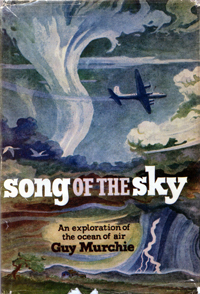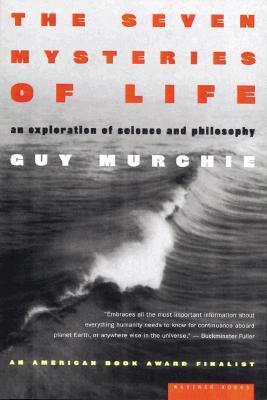
Song of the Sky
Book Description
When the skies whisper their secrets, who has the courage to listen? In "Song of the Sky," the delicate dance between man and nature unfolds through breathtaking prose, as Guy Murchie explores the intricate melodies of the heavens. Each chapter reveals the profound connections between human existence and the natural world, intertwining stories that echo with hope and revelation. Dancing clouds, the anguished cries of migrating birds, and the rhythms of the earth's cycles pulse with life, leading to a crescendo of thought-provoking insights. Will humanity rise to protect the fragile balance we share with the skies above?
Quick Book Summary
Song of the Sky by Guy Murchie is an eloquent meditation on the wonders of the atmosphere, flight, and humanity's connection to both. Blending science, history, and poetic observation, Murchie guides readers through the many layers of the sky—from the physics of clouds and weather to the migrations of birds and the adventures of aviators. His narrative weaves together natural phenomena and human experiences, revealing how intimately life on Earth is tied to the ever-changing heavens above. Murchie's lyrical prose uncovers the beauty, mystery, and fragility of the sky, inviting us to reconsider our relationship with the natural world and inspiring a sense of stewardship and reverence toward the environment that sustains us all.
Summary of Key Ideas
Table of Contents
Interdependence of Life and the Atmosphere
Guy Murchie’s Song of the Sky explores the complex interplay between life and the atmosphere, painting a portrait of the sky as both a scientific marvel and a poetic canvas. He delves into the interconnectedness of all living creatures with the air they share, describing how each inhalation ties humanity, animals, and even plants to the dances of wind and weather. The composition of the air, cycles of water and carbon, and intricate balances of the biosphere demonstrate a profound interdependence, fostering a sense of kinship with every living thing under the sun.
Mysteries and Science of Weather Phenomena
Woven throughout the narrative is a deep curiosity about the weather’s mysteries. Murchie explains the physics behind clouds, storms, rainbows, and lightning, making these phenomena approachable without sacrificing their inherent wonder. The book illuminates the invisible forces at play overhead, from the formation of cirrus clouds to the surge of jet streams, offering both scientific clarity and awe-filled descriptions. Each explanation is grounded in wonder, as Murchie uncovers the stories hidden in every shift of the wind and color of the dawn sky.
Human Experience and the Evolution of Flight
Song of the Sky is equally a history of flight, chronicling humanity’s ancient dreams and modern achievements in conquering the air. Murchie recounts the evolution of aviation, from mythological imaginings to the daring experiments of the Wright brothers and the exhilarating adventures of early pilots. He examines how flight has transformed our view of the world, elevating the human spirit and inspiring new ways to witness landscapes, weather, and migration patterns from above.
Poetic Observations on Nature's Patterns
Through his poetic lens, Murchie captures the natural rhythms and harmonies of the skies. He intertwines the migrations of birds, the movement of clouds, and the earth’s cycles into a symphonic narrative. The text is filled with lyrical observations that celebrate the beauty and mystery of the heavens, inviting readers to marvel at both the grand and minute details—the silent glide of a hawk or the ephemeral shimmer of a halo around the moon.
Responsibility and Stewardship of the Skies
Ultimately, the book is a call for responsibility and awe. Recognizing the delicacy of the atmospheric balance, Murchie urges readers to contemplate their role as stewards of the sky. He warns against hubris and carelessness, underscoring the fragility of the air that sustains life. Song of the Sky compels us to adopt humility, gratitude, and proactive care, affirming that humanity’s future is irrevocably linked to our treatment of the greatest commons of all: the sky.
Download This Summary
Get a free PDF of this summary instantly — no email required.





